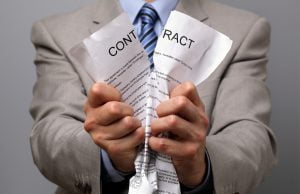What Do You Need To Craft Lease Extension Agreement in 2024?
Go Back To Previous PageLease extension agreements are integral documents that uphold the terms between a tenant and a landlord wishing to continue their lease term. Knowing how to craft such agreements soundly, especially in the changing scope of the future, i.e., in the year 2024, becomes increasingly critical.
agreements soundly, especially in the changing scope of the future, i.e., in the year 2024, becomes increasingly critical.
Understanding Lease Extension Agreements
Lease extension agreements extend the occupancy term of a tenant in a leased property based on mutual agreement between both parties.
Landlords and tenants often choose lease extensions. This helps keep a good rental relationship, avoids the trouble of moving, and meets tenants’ needs for an extended stay.
The Legal Framework for Lease Extension Agreements in 2024
As we approach 2024, staying informed about the anticipated statutory laws regarding lease extension agreements is critical. Changes in legal aspects can significantly impact the content and execution of these agreements, making it vital to assimilate these into your lease extensions.
Key Elements of Lease Extension Agreements in 2024
When crafting a lease extension agreement in 2024, it’s crucial to understand its key components. Here are the vital elements to ensure your agreement is comprehensive and productive:
- Parties involved: List the names of all parties involved, including the landlord and tenant(s). If applicable, include the property manager or any other significant entity involved.
- Property Details: Provide a detailed description of the property leased/ including the property’s address, type, and any notable features or conditions;
- Lease terms outline the extended lease term’s commencement and termination dates.
- Rent and payment terms: Specify the amount of rent, when it is due each month, and acceptable payment methods. The agreement should also underscore the consequences of late payments.
- Existing conditions: Highlight the property’s current condition and ensure both parties agree to prevent future disputes about damage claims.
- Obligations and rights: Mention the landlords’ and tenants’ rights and responsibilities. This might refer to property repairs, maintenance, and any property use restrictions, and
- Signatures: Both parties should sign and date the agreement to affirm their acceptance of the extended lease terms.
Steps To Get a Lease Extension Agreement
As 2024 approaches, creating an effective lease extension agreement involves a few essential steps:
- Get acquainted with the updated real estate regulations to ensure compliance with the law.
- Engage in meaningful, open dialogue with all parties about new lease terms to ensure mutual satisfaction and prevent disputes.
- Use clear, comprehensive language in the agreement to minimize ambiguity and ensure all parties fully understand their obligations and
- Seek a legal expert’s professional review of the agreement to ensure its totality and reinforce your confidence in its legal soundness and fairness.
Common Mistakes and Challenges
When drafting a lease extension agreement, avoid these common mistakes:
- Misinformation: Ensure all data and terms listed in the agreement are accurate. One needs more information to avoid complications and misunderstandings.
- Overlooking vital clauses: Remember to include all necessary provisions. Key details could make the agreement legally unsound or unfair.
- Failure to update to new regulations: Stay updated with real estate regulations relevant to lease extensions. Non-compliance could result in legal issues.
- Potential legal disputes: Avoid these by ensuring all parties fully understand and agree to the terms. Engaging in open dialogue is critical to this process, and
- Misunderstandings: Manage these using clear, comprehensible language and ensure all parties understand their responsibilities. Consider getting your agreement professionally reviewed for added clarity.
Leveraging Technology
With the rise of digitization, crafting a lease extension agreement can leverage technological tools for efficiency and accuracy. Platforms providing pre-formatted templates, text editing tools, and advanced virtual means simplify the process. They streamline processes, save time, eliminate human error, and provide instant document access.
For instance, instead of getting entangled in legal complexities, employing a well-crafted venue rental agreement template from reliable sources can streamline the process significantly. This legal document is the foundation for a transparent and mutually beneficial agreement between the host and the property owner.
Professional Advice in Lease Extension Agreements
Tapping into professional advice while crafting lease extension agreements adds tremendous value. Legal and real estate experts can provide guidance, optimize compliance with 2024 regulations, and help avoid legal issues. Furthermore, these professionals can offer insights into market trends and help strike an equitable and fair agreement.
Engaging a lawyer or real estate expert, preferably before initiating lease extension discussions, ensures you are well-prepared to navigate the process. Their final review can confirm the agreement’s balance, fairness, and legal soundness. In essence, professional advice is the cornerstone of sound lease extension agreements.
Conclusion
Crafting a lease extension agreement in 2024 involves a set of best practices, challenges, and legal aspects. A carefully formed agreement respects and safeguards the interests of both parties. Landlords and tenants can ensure a seamless lease continuation by exercising due diligence and leveraging technology and expert advice.

